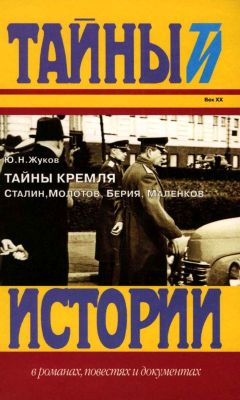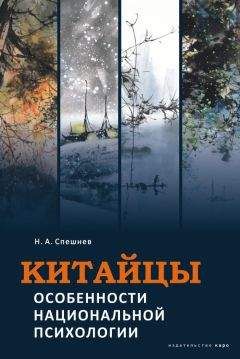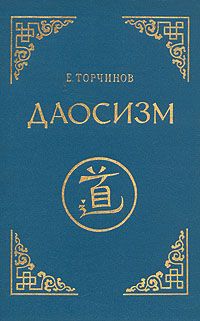Kim ManChoong - The Cloud Dream of the Nine
On her return the old nurse said to the lady Cheung: “In the Taoist Temple there is a young priestess who plays the harp as I have never heard it played in my life; it is the most wonderful playing in the world.”
The lady Cheung replied: “I wish I could hear her.” The following day she sent a closed chair and a servant to the temple bearing a message to the teacher Too-ryon, saying: “Even though the young priestess should not wish to come, please use your kind offices to have her visit me.”
The priestess then said to Yang before the servant: “This high and noble lady invites you; you must not refuse to go.”
“It is not fitting,” said Yang, “that one born of the low classes in a distant part of the country should go into the presence of nobility, and yet how can I refuse to do what your ladyship commands?”
So he donned the robe and hat of a priestess, took his harp and went forth. Truly he was as startling in appearance and as sweet as the ancient favourites of China. The servant of the Cheungs was beside herself with joy.
Master Yang, in the closed chair, safely reached Cheung's. The servant then led the way into the inner quarters. The lady Cheung, with dignified but kindly countenance, was seated in the main hall.
[CUTLINE: In Guise of a Princess]
The musician bowed twice before the step-way, and then the lady ordered her to be seated, saying: “My servant went yesterday to the temple and was so fortunate as to hear the music of the gods. She returned and expressed a wish that I might hear it so. Now indeed I realise what the saying means that the beautiful presence of the genii drives all worldly thoughts from the soul.”
The young priestess arose from her seat. “Your humble servant,” said she, “is from the land of Cho, and is making a hasty journey like a passing cloud. Because of my slight attainments in music your ladyship has called me to play before you. How could I ever have dreamed of such an honour?”
The lady Cheung told the servant to place the harp in order. She touched. it lightly herself, saying: “This is a beautiful instrument indeed.”
The young priestess answered: “It is made of o-dong wood that has dried for a hundred years on the Yong-moon mountain. Its fibre is close knit and hard like metal or marble. It was a gift to me that I never could have purchased with money.”
As they talked together the shades of the afternoon began to fall upon the white stone entry, but still there was no sign of the daughter.
The musician, in a state of great inward impatience and doubt, said to the lady: “Though your servant knows many ancient tunes and prefers them to the modern, I play them only, but do not know their names or history. I have heard the priestess in the temple say that your excellent daughter's knowledge of music is equal to that of the famous Sa-kwan. I should like to have her hear and comment concerning my poor efforts.”
The lady then sent a servant to call the daughter. In a little the embroidered door slid open and a breath of sweet fragrance issued forth. The maiden came sweetly out and sat down beside her mother. The musician arose, made two bows and slightly lifted his eyes to see, and lo, it was as when the first rays of the morning bursts upon one, or as when the fresh bloom of the lotus shows above the water. His mind was all in a daze, his spirit intoxicated so that he dared not look. He was sitting at a distance where he had difficulty in seeing, so he said to the lady: “I should like to hear more clearly what the young mistress says. The hall is so large and her voice so soft that I cannot catch the words.”
The lady then told one of the servants to bring the priestess's cushion up closer. The servant did so and arranged the seat just in front of the lady Cheung and to the right of the young mistress, and adjusted it so that they could not look straight at each other. Yang was disturbed by this, but did not dare to suggest a second change. The servant then placed the incense table in front and brought incense. Then Yang, the pretended priestess, touched the strings of his harp and began with the tune, “The Feathery Robes of the Fairy.”
The young lady said: “Oh, how beautiful! This is proof indeed of the happy world of Tang Myong days. The maiden's playing is beyond human conception, but, alas, it is said of this tune that the O-yang barbarian with the sound of the drum came thundering in, shaking the earth and drowning out the notes of the 'Feathery Robes.' This is a tune associated with wild war, and though wonderful in its power it has fearsome associations connected with it; try another, please.”
Yang played again. Then the young mistress said: “This is a beautiful tune too, but it suggests a wild, reckless life that rushes to extremes. King Hoo-joo of China enjoyed this tune to the undoing of his kingdom, and its name to-day is famous, 'The Garden of Green Gems and Trees.' The saying runs: 'Even though you were to meet Hoo-joo in Hades it would be out of place to ask him about Green Gems and Trees.' This is a tune that caused the loss of a kingdom, and is one not to be honoured. Won't you play another?”
Yang played another tune. Then the young lady remarked: “This tune is sad, glad, sweet and tender. It is the tune of Cha Moon-heui, who was caught in a war and carried off by the barbarian. Cho-cho gave a fabulous ransom for her and had her brought home. When she bade good-bye to her half-barbarian sons Cha Moon-heui wrote this tune. It is said, 'The barbarians on hearing it dropped their tears upon the grass, while the minister from Han was melted by the strains of it.' It is a very beautiful tune, and yet she is a woman who forsook her virtue. Why should we talk of it? Try another, please.”
Then Yang played again. The young mistress said: “This is 'The Distant Barbarian,' written by Wang So-gun [20]
. Wang So-gun thought of her former king and longed for her native land. She put into her song her lost country, and a wail of sorrow over the portrait that was her undoing. She herself had said: 'Who will write a tune that will move the hearts of the people for a thousand years as they think of me?' Still it is born of life with the barbarian and is a half-foreign tune, and not just what we should call correct. Have you another?”
Yang then tried another. Then the young lady's expression changed, and she said: “It is long since I heard this tune. You are surely not an inhabitant of the earth. This calls up the history of a great and wonderful man who had fallen on evil days and had given up all thought of worldly things. His faithful heart was bewildered over the mystery of life, and he wrote this tune called 'The Hill of the Wide Tomb.' As he was beheaded in the East market he looked at the setting sun and sang it, adding the words 'Alas, alas, will anyone ever desire to learn it? I have kept it to myself; now I grieve that there is no chance to pass it on.' You must indeed have met the spirit of the Buddha Sok-ya to have learnt it.”
Yang, kneeling as he was, replied: “The young mistress's wisdom is unequalled by any other on earth. I learned this from a great teacher, and his words were indeed the very words of your ladyship.”
He played still another. Then Cheung See said “Enough, enough, 'tis the sadness of the autumn. The brown hills are bare and craggy, the waters of the river wide and far across. The footprints of the fairy are seen upon the dust of earth. This is the tune of the 'Water Fairy.' My priestess musician has all the knowledge of a hundred generations.”
The young master played again, while the lady adjusted her dress and knelt circumspectly, saying: “This is the supreme expression of all music. The Sage alights on an evil world, travels through all parts of it, desiring to help the distressed and the needy. If not Confucius, who ever would have written a song like this? It is no other than 'The Fragrant Orchid.' The thought runs: 'He travelled through all the nine provinces and found no place in which to rest his heart.' Is this not so?”
Yang, kneeling, cast more incense on the fire, then played again, whereupon the young lady said: “Refined and beautiful is 'The Fragrant Orchid' as it came from the mind of the great Sage, who sorrowed over the world and desired to save it; but there is a strain of hopelessness in it. In the song, however, all is bright and happy like the opening buds of May, free and gladsome; there are no words by which to tell it. This is the famous tune of the 'Nam-hoon Palace of King Soon.' Concerning it, it is written: 'The south wind is warm and sweet and bears away on its wings the sorrows of the world.' This is lovely,and fills one's heart to overflowing. Even though you know others I have no desire to hear them.”
Yang bowed and said in reply: “Your humble servant has heard that you must play nine before the spirit of God comes down. I have already played eight; one still remains, which, with your kind permission, I will play.” He straightened the bridge of the harp, tuned it once again, and began.
The music seemed far distant at first, miles away, awakening a sense of delight and calling the soul in a fast and lively way. The flowers in the court opened out at the sound of it; the swallows in pairs swung through their delightful dancings; the orioles sang in chorus to each other. The young mistress dropped her head, closed her eyes, and sat silent for a moment till the part was reached which tells how the phoenix came back to his native land, gliding across the wide expanse of sea looking for his mate.
The young mistress opened her eyes and looked once straight at the priestess. Then she bent her head as though to adjust her dress. The red blushes mounted to her cheeks and drove even the paler colour from her brow, until she looked like one who was red with wine. She quietly arose and went into her own room.
Yang gave a start of surprise, pushed away his harp, got up, looked straight before him towards the place where the young lady had gone. His spirit seemed to leave him, and his soul to die away, so that he stood like a porcelain image. Her ladyship told him to be seated, asking: “What was it that you played just now?”
Yang replied: “I got this tune from my teacher, but do not know what its name is. I should like the young lady kindly to tell me.” But though they waited long she did not reappear. The lady Cheung then asked the cause from the servant, who returned to say that her young mistress had been exposed to the draught somewhat and was feeling unwell, so that she would not be able to rejoin them.
In doubt whether he had been discovered or not Yang felt uncomfortable, and did not dare to stay longer. He arose and made a courteous bow to the lady Cheung, saying: “I am so sorry to hear that the young mistress is feeling unwell. I am afraid I may have upset her by some lack of good form on my part. Your ladyship will be anxious, too. May I ask leave to go?”
The lady gave money and silk by way of reward, but the priestess refused it. “Though I know something of music I have studied it only as a pastime,” said she, “and must not accept these rich presents.” She then bowed her thanks, went down the stone steps and was gone.
The lady made anxious inquiry about her daughter but found that there was nothing serious the matter.
Later Cheung See entered her mother's room and asked of the servant there: “How is Cloudlet feeling to-day?”
The servant replied: “She is better. Finding that your ladyship was enjoying the music, she got up and made her toilet.”
Now Cloudlet's family name was Ka and her birthplace was So-ho. Her father had come up to the capital, and was a secretary in one of the offices of the ministry. He had proved himself a faithful servant to Chief Justice Cheung, and shortly after his death, when Cloudlet was about thirteen years of age, the Justice and his wife took pity on the orphan and made her a member of their family and the playmate of their daughter. There was a difference of a month only between the ages of the two girls.
Every line and feature of Cloudlet 's face was a model of comeliness. She was the equal of the young mistress in literature, in penmanship, and in embroidery, and she was treated in every way like a sister, and one whom the young lady would scarcely let go out of her sight. Though there was the relationship between the two of mistress and maid, they loved each other as only bosom friends do. Cloudlet's name originally was Cho-oon, a Cloud from Cho, but her young mistress was so in love with her beauty that she borrowed an expression from the writings of Han Toi-jee which says, “Beauty is like a cloud of springtime,” and called her instead Choon-oon, “Spring Cloud,” and so all the members of the family called her familiarly, Cloudlet.
Cloudlet inquired of the young mistress, saying: “The servants were all excited about the visitor, telling me that the priestess who played the harp was like a fairy and that her execution was most wonderful. Your praising her so made me anxious to forget my little ailments and get a glimpse too. Why has she left so suddenly?”
The young lady blushed, and said hesitatingly in reply: “Cloudlet, my dear, you know how I have been as careful of my behaviour as the Book of Rites requires; and how I have guarded my thoughts as the pearls and jewels of my life; that my feet have never ventured outside the middle gates; and that in conversation I have not even met my friends. Would you believe it, I have been deceived and have had put upon me a disgrace that will never be wiped out. How shall I bear it or lift up my face again to the light of day?”
Cloudlet was greatly alarmed and asked: “What do you mean?”
The young lady replied: “I did really say of the priestess who came just now that she was very, very beautiful, and her playing simply marvellous.” Then she hesitated and did not finish what she was about to say.
Cloudlet made answer: “But what of that?”
The young lady replied: “The priestess began by playing the 'Feathery Mantle,' and then went on playing one by one, till she came to 'King Soon's Palace.' They were all in keeping, each selection following the other, so I asked her to stop there. She said, however, that she had one more that she would like to play. It was none other than the tune by which General Sa-ma fascinated the heart of Princess Tak-moon, the song of the phoenix seeking his mate. I was in doubt the minute I heard this, and so looked closely at her face, and assuredly it was not a girl's face at all. Some cunning fellow, wanting to see me, has pushed his way in here in disguise. I am so sorry for one thing; if only you, Cloudlet, had been well enough to have shared in this, and had seen him, you would have detected the disguise at once. I, an unmarried girl of the inner quarters, have sat for two full hours face to face with a strange man unblushingly talking to him. Did anyone ever hear of such a thing in the world before? I cannot tell this even to my mother. If I hadn't you to whom I could unburden my heart, what should I do?”
Cloudlet laughed and said in reply: “Even though you are an unmarried girl why shouldn't you hear the tune of General Sa-ma looking for his mate? The young mistress is mistaken and has seen a snake's shadow in her glass of wine.”
The young lady replied: “Not so, there is a law that governs the selection of tunes. If there was no meaning in the search of the phoenix for his mate, why should it have been played last of all? While there are those among women who are delicate and refined, there are also those who are coarse and ugly, but I never saw anyone just like this person before, so beautiful and yet so commanding. I have a conviction now that the examination is close at hand and candidates are gathering, that some one among them has heard a false rumour of me, and has taken this way to spy out and see my face.”




